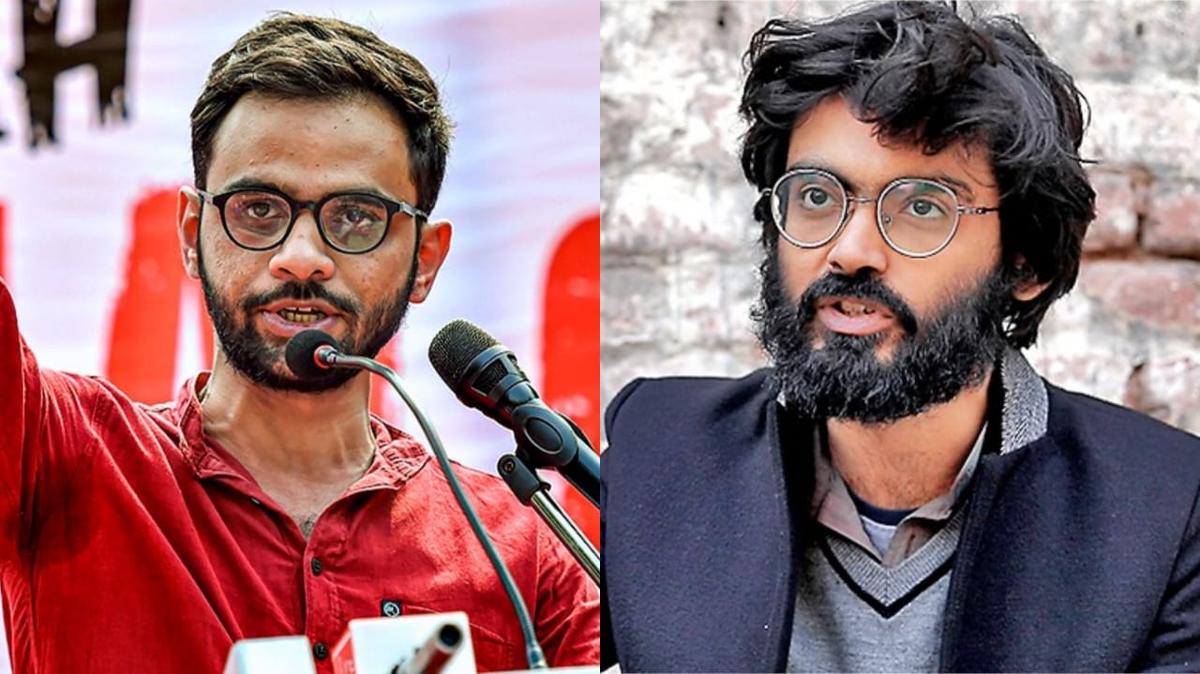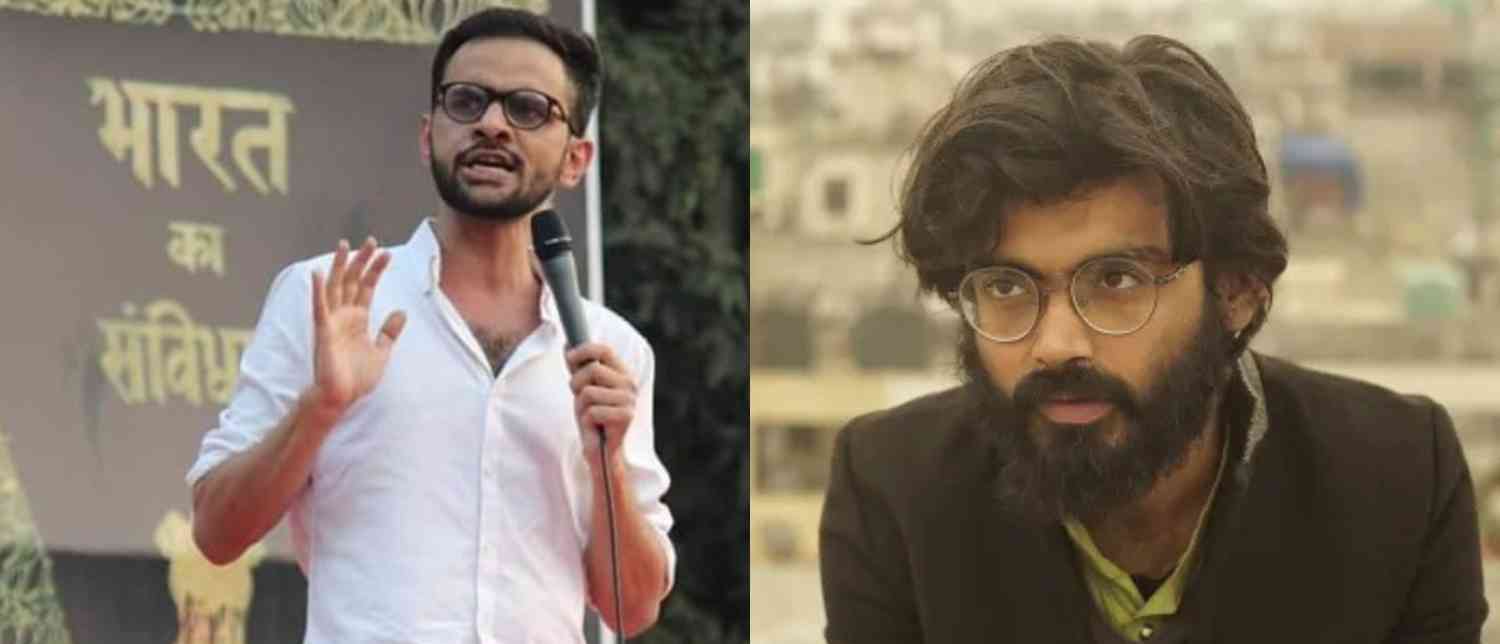The Delhi High Court has once again denied bail to prominent student activists and leaders accused in the 2020 Delhi riots “larger conspiracy” case. The judgment, delivered by a division bench of Justice Navin Chawla and Justice Shalinder Kaur, dismissed the appeals of Umar Khalid, Sharjeel Imam, and seven others who sought release after spending nearly three years behind bars under charges filed by the Delhi Police’s Special Cell.
The ruling underscores the court’s agreement with the prosecution’s claim that the violence was not spontaneous but a “well-planned conspiracy” linked to protests against the Citizenship (Amendment) Act (CAA) and National Register of Citizens (NRC).

Who Were the Accused?
The court order relates to nine accused persons whose bail pleas were taken up together. All of them had earlier approached the High Court after being denied bail by the trial court. The accused include:
-
Umar Khalid – former JNU student leader
-
Sharjeel Imam – activist known for speeches against CAA-NRC
-
Athar Khan
-
Khalid Saifi
-
Mohd Saleem Khan
-
Shifa ur Rehman
-
Meeran Haider
-
Gulfisha Fatima
-
Shadab Ahmed
Arrest Dates of the Accused
|
Name of Accused |
Date of Arrest |
|---|---|
|
Sharjeel Imam |
January 28, 2020 |
|
Umar Khalid |
September 13, 2020 |
|
Athar Khan |
June 29, 2020 |
|
Khalid Saifi |
February 26, 2020 |
|
Mohd. Saleem Khan |
June 24, 2020 |
|
Shifa ur Rehman |
April 26, 2020 |
|
Meeran Haider |
April 01, 2020 |
|
Gulfisha Fatima |
April 04, 2020 |
|
Shadab Ahmed |
June 11, 2020 |
All nine remain in custody since their arrests in 2020, charged under the Unlawful Activities (Prevention) Act (UAPA), 1967, along with various sections of the Indian Penal Code (IPC), 1860.
Accused Persons’ Arguments in Court
- Umar Khalid’s Defense
Represented by Senior Advocate Trideep Pais, Umar Khalid argued that the case against him was weak and based largely on circumstantial evidence. Pais submitted that Khalid’s mere membership in certain WhatsApp groups did not amount to criminal activity, particularly since he had not posted or circulated any incriminating messages.
Khalid also denied attending the alleged “secret meeting” on the night of 23–24 February 2020, which the prosecution claimed was central to the conspiracy. His counsel maintained that the meeting was neither secretive nor sinister, contrary to police allegations. Furthermore, Khalid’s defense emphasized that there was no recovery of money, weapons, or any other incriminating material linking him to violence.
- Khalid Saifi’s Argument
Senior Advocate Rebecca John, appearing for activist Khalid Saifi, questioned the prosecution’s reliance on ordinary text messages to build a case under UAPA. She asked, “Can innocuous WhatsApp messages, or the attempt to weave stories around them, be enough to prosecute someone under UAPA?”
John also argued that Saifi should be granted bail on the principle of parity, pointing to three co-accused who had already been granted bail back in June 2021.
- Sharjeel Imam’s Position
Advocate Talib Mustafa, appearing for Sharjeel Imam, argued that his client was “completely disconnected” from the co-accused and not part of any alleged conspiracy meetings. He further pointed out that Imam’s supposed role in the riots ended by January 23, 2020, much before the violence broke out. The prosecution’s main evidence, he said, was a speech delivered by Imam in Bihar—a speech that, according to his defense, never incited violence.
The Prosecution’s Case
The Delhi Police, represented by Solicitor General Tushar Mehta and Special Public Prosecutor Amit Prasad, strongly opposed the bail applications.
Key Points from the Prosecution:
-
Not Spontaneous, But Planned: The prosecution maintained that the February 2020 riots were not a result of spontaneous unrest but were “planned well in advance with a sinister motive and well-thought-out conspiracy.”
-
Global Defamation of India: SGI Tushar Mehta argued that the intention behind the conspiracy was to tarnish India’s global image by orchestrating riots and arson on strategic dates.
-
Grave Offences: The Delhi Police insisted that this case fell under the category of “grave and heinous crimes,” where the general principle of “bail is the rule, jail is the exception” does not apply.
-
Speeches and Fear: The prosecution argued that speeches delivered by Khalid, Imam, and others, along with their discussions on sensitive topics like CAA-NRC, the Babri Masjid, triple talaq, and Kashmir, had created an atmosphere of fear and polarization.
-
No Right to Speedy Trial as Bail Ground: The police denied deliberately delaying the trial and stated that the right to a speedy trial could not automatically guarantee bail for those accused of orchestrating such a large-scale conspiracy.
Tushar Mehta also issued a strong statement during the hearing: “If you are doing something against the nation, then you better be in jail till you are acquitted or convicted.”
Background of the Case
The violence in Northeast Delhi in February 2020 coincided with nationwide protests against the Citizenship (Amendment) Act (CAA) and proposed National Register of Citizens (NRC). The riots left 53 people dead and over 700 injured, with widespread destruction of property.
The Delhi Police filed FIR 59 of 2020 under various IPC provisions, including rioting, murder, and criminal conspiracy, along with charges under the UAPA.
The accused in the larger conspiracy case include:
-
Tahir Hussain (former AAP councillor)
-
Umar Khalid
-
Khalid Saifi
-
Ishrat Jahan
-
Meeran Haider
-
Gulfisha Fatima
-
Shifa-Ur-Rehman
-
Asif Iqbal Tanha
-
Shadab Ahmed
-
Tasleem Ahmed
-
Saleem Malik
-
Mohd. Saleem Khan
-
Athar Khan
-
Safoora Zargar
-
Sharjeel Imam
-
Faizan Khan
-
Natasha Narwal
Some of these accused have since been granted bail, but many, including Khalid and Imam, remain incarcerated.
Court’s Verdict
After reserving its judgment on July 9, 2024, the High Court on Tuesday pronounced its decision:
“All the appeals are dismissed.”
With this, the bench of Justice Navin Chawla and Justice Shalinder Kaur confirmed the trial court’s earlier ruling, keeping all nine appellants in judicial custody.
Why the Bail Was Denied
-
Serious Nature of Charges: Since the case involves UAPA provisions, the threshold for granting bail is significantly higher. Courts are required to consider whether a prima facie case exists against the accused.
-
Prosecution’s Narrative of Conspiracy: The High Court accepted the argument that the riots were not accidental but carefully orchestrated to coincide with CAA-NRC protests.
-
Risk of Influence: Given the nature of the allegations, the court seemed convinced that releasing the accused might interfere with the ongoing trial.
Broader Legal and Political Implications
The Delhi riots case has become one of the most high-profile trials under UAPA in recent years. It has sparked debate over issues of:
-
Civil Liberties vs. National Security: Critics argue that prolonged incarceration without trial amounts to punishment before conviction. Supporters of the prosecution contend that national security demands strict measures against conspiracies.
-
Use of UAPA: The frequent invocation of UAPA in cases involving protests has raised concerns about its potential misuse against activists and dissenters.
-
Delayed Trials: With many accused spending over three years in jail without a completed trial, the case highlights larger concerns about judicial delays in India.
What Lies Ahead?
For Umar Khalid, Sharjeel Imam, and the other accused, the immediate future remains uncertain. Their legal teams may explore the option of approaching the Supreme Court of India for relief. However, given the stringent nature of UAPA and the court’s emphasis on the gravity of charges, securing bail will remain a challenging task.
At the same time, the trial in the lower courts continues. The prosecution maintains that it will prove the conspiracy through digital evidence, witness statements, and financial trails, while the defense insists that the case is politically motivated and built on flimsy grounds.
The Delhi High Court’s denial of bail to Umar Khalid, Sharjeel Imam, and seven others reinforces the judiciary’s stance that the 2020 riots were not spontaneous but part of a deliberate, organized conspiracy. While the defense highlights weak evidence, long incarceration, and lack of direct involvement, the prosecution underscores the seriousness of the charges and the alleged attempt to defame India globally.
As the trial moves forward, the case will continue to test the balance between safeguarding national security and upholding the constitutional rights of individuals, making it one of the most closely watched legal battles in contemporary India.
With inputs from agencies
Image Source: Multiple agencies
© Copyright 2025. All Rights Reserved. Powered by Vygr Media.






















